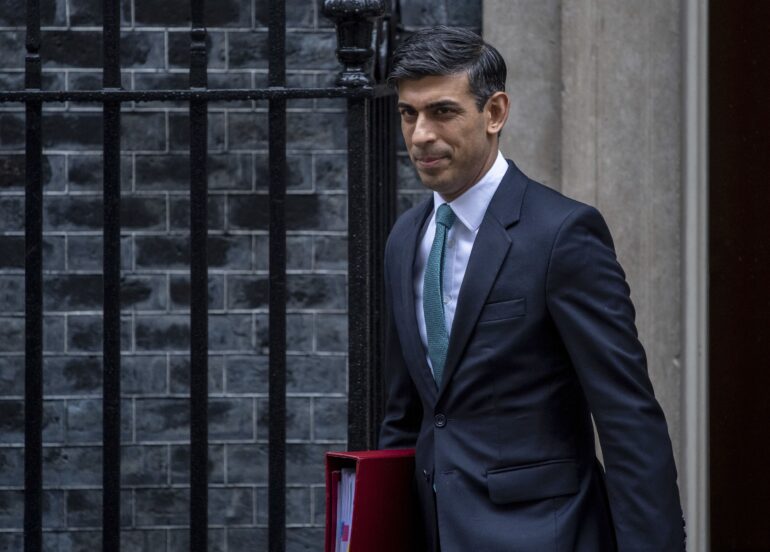TL;DR:
- Rishi Sunak is considering restricting Chinese officials’ participation to just the opening day of a crucial AI safety summit in November.
- Concerns over Beijing’s alleged espionage activities have prompted this move, though it’s unrelated to a recent arrest.
- The summit aims to shape global AI policy and includes leaders like Macron, Trudeau, and von der Leyen.
- US President Biden won’t attend; VP Harris will represent the US.
- Sunak wants the UK to lead in AI regulation to prevent misuse.
- The summit will focus on AI risks, including biohazards and bioweapons.
- It may become a recurring global event, modeled after G7 or G20 gatherings.
- Guests include heads of government, tech leaders, and civil society representatives.
- Uncertainty surrounds Mark Zuckerberg’s attendance.
- British officials are delicately managing the sensitive issue of China’s participation.
- Logistics challenges include accommodations for VP Harris.
Main AI News:
In the ever-evolving landscape of artificial intelligence (AI) safety, Rishi Sunak, the Chancellor of the Exchequer, is contemplating a significant decision that could reverberate through global AI policy discussions. Reports suggest that Sunak is weighing the possibility of restricting the participation of Chinese officials to just the opening day of the upcoming AI safety summit slated for early November at the historic Bletchley Park. This potential move follows rising concerns over Beijing’s alleged espionage activities targeting Western governments.
Interestingly, the UK government had previously extended an invitation to China to attend the summit, a gesture that has garnered its share of criticism in light of recent revelations regarding a parliamentary researcher’s arrest on suspicion of spying for China earlier this year. While the arrest does not directly correlate with the decision to potentially limit Chinese officials’ involvement, it does raise concerns about espionage activities.
The summit itself holds immense significance, as it is expected to shape the international community’s approach to AI for the foreseeable future. Notable world leaders, including French President Emmanuel Macron, Canadian Prime Minister Justin Trudeau, and Ursula von der Leyen, President of the European Commission, are anticipated to attend the entire two-day event. However, it’s worth noting that US President Joe Biden will not be in attendance; instead, Vice President Kamala Harris will represent the United States.
A source familiar with the summit’s planning process commented, “We always knew Biden was unlikely to attend, but the question Downing Street now has to decide is what to do about the Chinese.” A government spokesperson emphasized the summit’s significance, stating, “The UK will host the first major global summit on AI safety this November, bringing together key countries, as well as leading companies and researchers, and civil society, to drive targeted, rapid international action on the safe and responsible development of the technology.”
Sunak, who announced the summit in June, has been heeding warnings from AI industry leaders about the potential misuse of AI technology for misinformation, fraud, and even threats to humanity. His aspiration is to position the UK as a global leader in AI regulation, harnessing the technology’s transformative potential for public services while establishing safeguards against its destructive misuse.
Insiders familiar with the summit’s proposed agenda reveal that it will primarily focus on the risks posed by AI to human life. Concerns loom over the possibility of states or individuals exploiting AI to accelerate the development of biohazards and bioweapons. Officials envision the summit becoming a recurring event, either annually or biennially, hosted by different countries, following the model of gatherings like the G7, G20, or CoP.
The guest list for the summit is expected to include heads of government, tech industry titans, and representatives of civil society. Notably, Sir Nick Clegg, the former UK deputy prime minister, is anticipated to attend in his capacity as the President of Global Affairs for Meta, Facebook’s parent company. However, the attendance of Meta’s founder, Mark Zuckerberg, remains uncertain.
While technology entrepreneur Elon Musk, the world’s wealthiest individual, may also grace the event with his presence, officials note that none of his companies currently hold a global leadership position in AI development.
The invitation extended to Beijing has proven to be one of the most diplomatically sensitive aspects of summit planning. Sunak has emphasized the importance of engaging with Beijing and recently met with Chinese Premier Li Qiang during the G20 meeting in Delhi, where discussions on AI took center stage. In light of intelligence experts’ increasing warnings about extensive Chinese espionage activities in the UK and elsewhere, British officials have explored the option of restricting China’s participation to just one of the two summit days. Notably, this deliberation is not directly linked to recent espionage-related revelations.
In addition to this delicate issue, Downing Street faces other logistical challenges, including accommodations for Vice President Harris and her substantial entourage. Bletchley Park is situated an hour and a half away by car from central London, where American delegations typically stay during bilateral visits. To address this, officials are planning to erect multiple marquees within the estate grounds to accommodate the diverse array of events scheduled over the course of the two-day summit.
Conclusion:
The potential limitation of Chinese officials’ participation in the AI summit underscores the growing concern over espionage activities. This move reflects a cautious approach to safeguarding AI discussions, but it also highlights the geopolitical complexities of AI governance. Businesses operating in the AI sector should closely monitor these developments, as they may influence international collaboration and regulatory frameworks.

